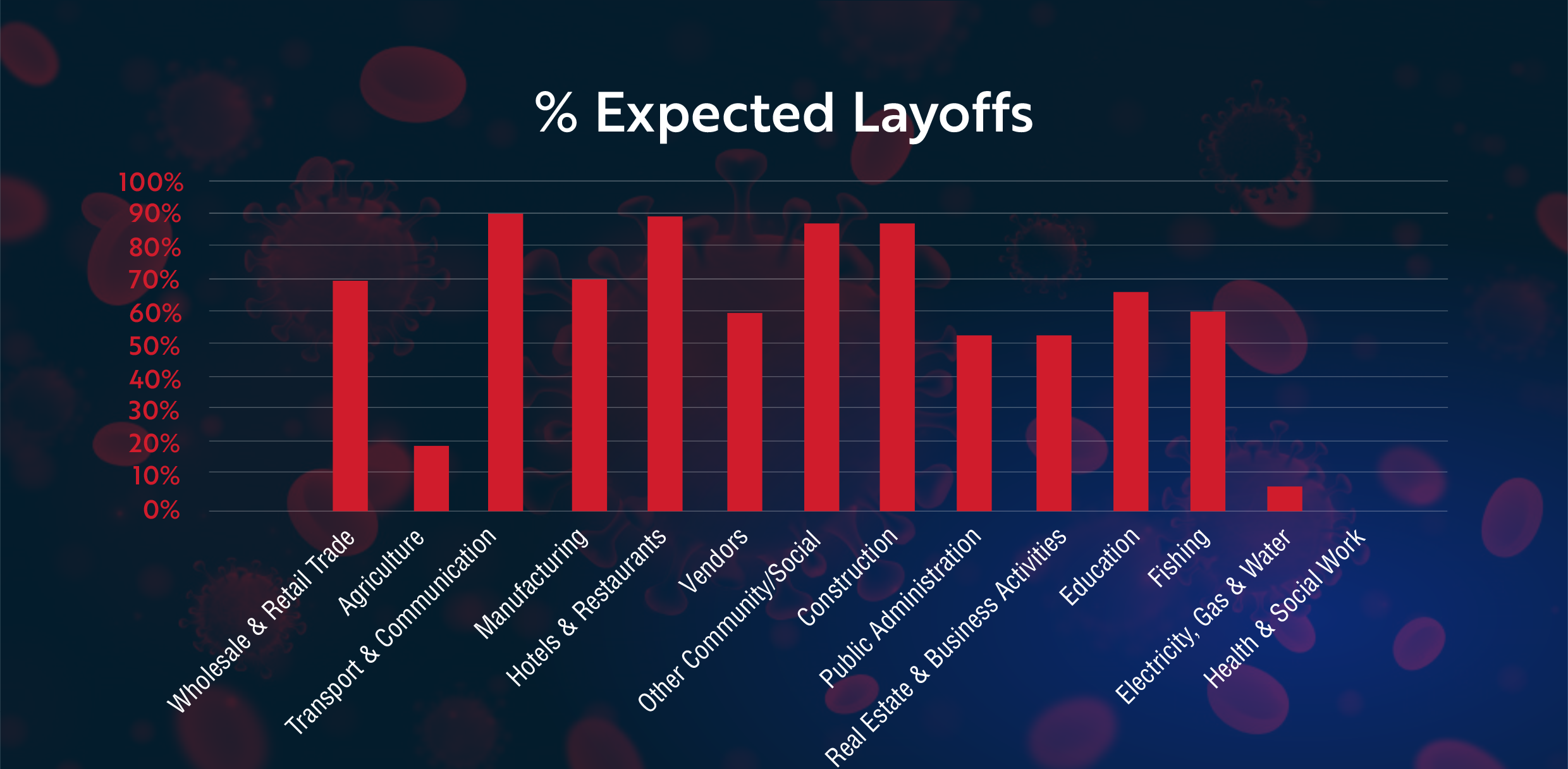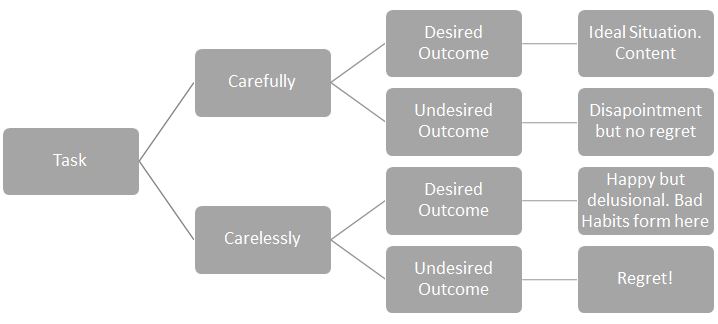In the midst of the Corona crisis, businesses both global and local, are faced with immense challenges, and some are
on the verge of going bankrupt. COVID-19 has been spreading rapidly around the world and Pakistan is no
exception. Although a lock down has been implemented as a safety measure, it has either given birth to new
challenges or exacerbated existing ones.
In this context, Carnelian reached out and conducted qualitative research in the business sector with more than
26 clients across 20 different industries. This article incorporates findings and reflections from our primary
research alongside our study of current global trends. This exercise was conducted in the first half of April and
represents findings as of mid-April 2020.
The Current Situation
This pandemic is leading to not only mental health issues such as anxiety, stress and frustration but also physical
health issues like weight gain, back and neck pain. Unlike that of the workplace, the furniture in most homes is
not designed for prolonged sitting and neither are there separate/quiet spaces conducive to focus and concentration.
However, this is not the only challenge faced by employees and management during this lockdown.
Adapting to digital transformation has been an uphill task for employees across the country. It is crucial for
leadership in every organization to create engagement and stay connected with all its employees along with other
key stakeholders in times of such uncertainty. It has been encouraging to learn that this is now being done using
the internet through various methods such as virtual training, newsletters, webinars as well as ‘fun’ internet
challenges like setting up your desk.
With most of the businesses at a near standstill, industries, such as Oil and Gas, are struggling as their revenues
have taken a big hit. To remain viable, companies are having to find savings by cutting costs through salary
reductions, redundancies, unpaid leave, and also by looking for efficiencies in areas that were previously not
given priority. New investments have been shelved too, for the time being. These measures have spread a wave
of fear and insecurity among the employees in almost every organization.
According to a report “Impact of Corona virus on Pakistan’s Economy” by Dun & Bradstreet (1) due to global trade on
a downward trajectory, exports have also taken a hit with a 12.9% m-o-m decrease in March, 2020, and is
expected to decline further down to as high as 20% by the month of June. Many small businesses are also
affected and face the looming prospect of going under. As published in Tribune (2), in case of a complete lockdown,
a forecasted 18.5m jobs will be lost across the country.

The Coping Mechanisms in Place
Companies are trying to streamline their processes for different departments and have managed to set up an
efficient communication network. While some companies found it easier to switch from the traditional workplace
environment to a digital one, others still seem to be struggling to adapt to the new real. A leading ride-hailing
company for example, already had systems in place where their teams were working online and from home. They
were quick to start using platforms such as Zoom for their meetings and seamlessly adjusted to the new culture.
While on the other hand, a big player in the Oil & Gas industry, has yet to align its employees around its revised
strategy. Another petroleum company has told its male employees to work from their offices and the female
employees to work from their homes, an unusual move to combat COVID-19.
What will be the New Real?
Overall most companies believe that it would take at least 6 months to recover from this pandemic while a few
are hoping that lockdown ends soon, and things start moving towards normalcy. In reality however, the expected
recovery times seem to differ on an industry to industry basis. In the oil sector, companies expect their business
to get going by the end of June. On the other hand, retail-oriented businesses in textiles and footwear expect the
shocks of COVID-19 to go on for 12 to 18 months. Ride hailing services will recover faster than public transports
as people would want to continue physical distancing for a while even after the pandemic ends.
Regardless of the industry, being ever ready for change through flexibility and adaptability, agile working is
expected to be the norm. Agile working is a form of flexible working environment where employees are
encouraged to choose how, when, and where to work. The basic idea behind this is to remain focused on
business results by maximizing flexibility.
It is heartening to note that companies that were initially slow in moving towards a digital environment, have now
started to adapt to norms of the future. Schools have moved towards e-learning and almost all organizations as
mentioned earlier are encouraging work from home, which only a few months ago, was a distant idea.
Recommendations for the L&D industry in the face of these Challenges
A major shift in the L&D industry can be seen from conventional in-house trainings to e-modules and virtual
learning. It is interesting to see that e-modules are short (10-15 minutes) and focus on one or two learning
outcomes at most. Supporting analytics keeps the organization abreast with who is learning what and how well.
Likewise, virtual trainings simulate learning experiences even though the instructor and the participants are in
separate locations. Advantages and effectiveness of digital learning platforms have now become much more
apparent to decision makers. Cost-savings on travelling, accommodation, overheads etc have led companies to
prefer digital learning over traditional learning even after the pandemic.
However, with e-learning having its benefits, to increase its effectiveness, there is a dire need to increase
engagement and interaction with employees using digital modes of learning to significantly augment traditional
methods. We say this because one of the companies mentioned that it is not feasible for them to move towards a
digital environment as they are more of a ‘traditional’ company, with most employees not having a growth
mindset and requisite skills or motivation to willingly embrace new ways of working. So for such companies it is
necessary to realize that building virtual capacity is the vital next step for L&D organizations.
Although it cannot be denied that the attraction for e-learning is now higher than ever, only time will tell, whether
traditional training will be in demand at a level it once was. One thing is for sure, that digital learning has made
its way into the L&D industry and will be a regular offering in the future, alongside traditional learning solutions.
Based on the research and discussions so far, the demand for webinars and digital content is high in the short
term and is expected to remain or even rise after the pandemic is over.
Need for having localized online courses on stress management, work-from-home, and business communication
were some of the suggestions made by the participating organizations. A concerted effort is required to run
awareness campaigns to make such offerings accessible to every individual.
Conclusion
Data gathered from the business sector suggests that maintaining and flourishing relationships with clients and
key stakeholders is crucial for all consulting firms. From a financial standpoint, it is as important, if not more, to
minimize cost, while striving for revenues. For organizations with premium products or services, the focus needs
to shift from pricing to volume to keep the revenues stable. According to a senior HR manager in an automobile
company, consultancies can also begin supporting SMEs (Small and Medium Enterprises) in business development,
growth, entrepreneurship, governance, and financial management, to help them stay afloat and sustain growth
over the long haul.
1. Published in the first week of April, 2020
2. “Coronavirus forecast to render 18.5m jobless in Pakistan” by Shahabaz Rana published on 3rd April, 2020



